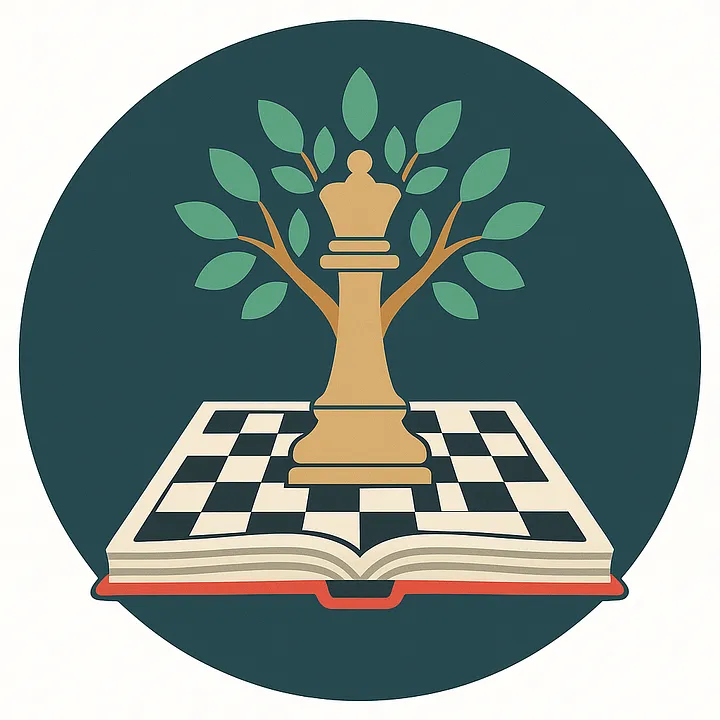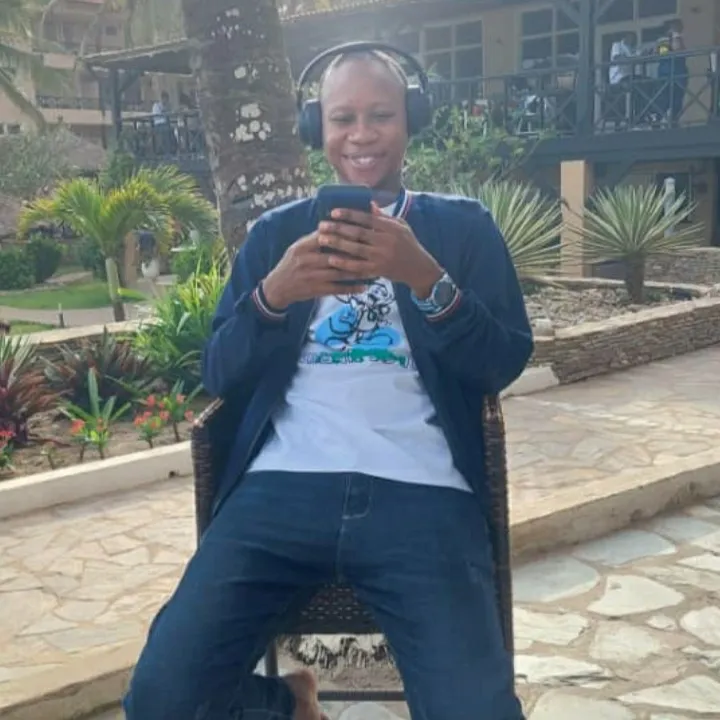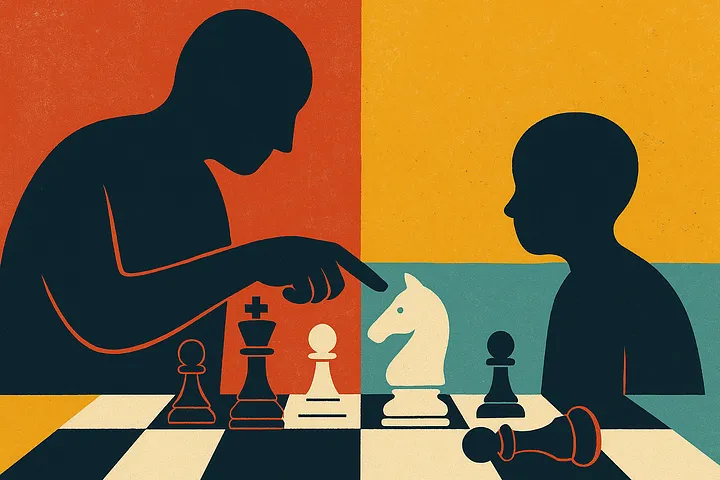It is entirely conceivable that life’s splendour forever lies in wait about each one of us in all its fullness, but veiled from our view, deep down, invisible, far off. It is there, though, not hostile, not reluctant, not deaf. If you summon it by the right word, by its right name, it will come. This is the essence of magic, which does not create but summons. — Franz Kafka
As I wander deeper into the world of books, I’ve taken a liking to Franz Kafka. Sure, he’s a bit of a pessimist, but somehow, he still manages to search for meaning, even when everything feels hopeless, and that sticks with me.
Kafka believes that people can find purpose by being creative, making art, and staying committed to their unique experiences. I agree with this, but then, I think a lot of people go through life without being mindful, and they succumb to trends without thinking, and never tap into the reality of their true potential.
My ever-curious reader,
Just when you thought the pages had settled, I return with more questions to unravel. And there is no stopping soon, only the turning of another page.
While I struggle with the urge to keep things to myself, the need to let it all out often wins. Silence has its charm, but these pages keep drawing the truth from me. Still, I should tread carefully. You never know, Voldemort could be reading.
All in, Q64 Bus and my train of thought

It was a snowy day in Forest Hills, 71st Avenue. I was on my way to Edith K. Bergtraum School (P.S. 165Q), and no, not for cheese, but for chess. Settle down, foodie, this wasn’t a gourmet tour.
I stepped onto the Q64 Bus heading into Queens (caught the chess hint? Or do I need to castle it out for you?) A few minutes in, I noticed a woman playing chess on her phone. She looked up, caught me watching and asked,
You play chess too?
A little bit. I smiled and nodded my big bald head.
She nodded and focused back on her game. I kept on watching. Her opponent played a sneaky knight move, setting up a mate threat. She hesitated, time slipped, and she flagged. In that moment, we shared a glance and we both understood.
I gently asked if I could offer an unsolicited opinion to which she obliged. I showed her a counterattack, one that defended precisely while posing a mate threat of its own. She blinked , stared and muttered, this is why I can’t take chess too seriously…. Too complicated. Too much pressure and expectations. But I love it.
In this moment, I went blank, not because I cared less, or maybe my personal AI (Ayozer0) was updating. Was I projecting my own standards on this familiar stranger on the bus? How could she love chess and not be willing to take it half seriously? Or did I miss the whole point?
Now I’m thinking, women can absolutely break the barriers in chess. History proves it with the likes of the legendary Polgar sisters, and the Shrook sisters of Egypt, but they have to really care more about the intricacies of the game and not merely, like me, run the rat race of chasing titles and ratings. The thing is, you see, chess is a gift that keeps giving, more women need to learn chess and keep playing it, not necessarily to become Masters of the game, but it could be a launchpad to other fields. That’s the magic of chess; lots of skills from chess are transferable to life beyond the board.
My experience on that bus summoned up a new perspective, and now I am in awe of the work I do as a coach and the impact we’re making at Promoting Queens.
The often underestimated value of Chess engagement

In a male-dominated field like chess, the higher you go, the fewer women you see. Hence, it’s important to keep pushing the ceiling, and to that effect, I try to do my bit and help in any way I can. So far, I have coached and mentored over 20 women in chess, and I am still doing so to this day, passively and sometimes actively.
Each of these students come in with an eagerness to learn, full of passion, and with lots of raw potential. But after a while, they all seem to hit the same wall, inertia kicks in, and a longing for something beyond their unfinished chess program sets in. Suddenly, chess stops being a muse. Some of these ladies ask me, “Why should I keep pushing in a game that does not always feel rewarding or relevant to my aspirations in life?” Yes, I get it, chess can be tough and rough on the mind, and losses can break one’s spirit. But how do we break past this strange but common occurrence?
Here’s what I have noticed: many of these women thrive in other fields, tech, business, education and many more. But they don’t particularly see the direct rewards of chess for themselves. The women who push through and break the glass ceiling in chess have, by some means, found chess to be intrinsically rewarding to them.
A number of these ladies who have had successes in other fields somehow owe it to the lessons they have picked from sitting across a chessboard. They claim that chess has taught them discipline, patience and exposed them to the art of scheming. Even when things are not happening, they have to create their own plans, develop and reroute and re-strategize. This goes to show that the art of chess has far-reaching effects on any mind.
The virtues that rub off on these women (and anyone, I daresay) from daring to sit humbly across a chess board to drink of the didactic courses in grit and perseverance can make even the lowliest of persons think with a sense of nobility. For many women I have coached, this alone is more than enough, and it is still a big win for them. While I try to keep pushing them towards mastery, they’ve claimed the win from the many virtues chess gives them –Empowerment.
Can coaching harm?

In my years of growing as a coach across two regions of the world, I’ve learned a core lesson: not all who wander are lost. And perhaps the most profound is the Japanese saying — “When the student is ready, the master appears.”
Coaching should never be forced. It’s not about saying, “I have so much to offer, so you must benefit from it.” The true value of great coaching is reflected in the growth of the student, not just in the coach’s knowledge.
This brings to mind the iatrogenic side of empowerment. How intention and motivation can be misread. You cannot save a fish from drowning. Coaching and mentoring are not merely tasks; they are a form of art that requires intention and skill.
“You need to be teaching in real time, at least coached, consulted and mentored at least 3 people and be somebody that has transformed numerous people with the transformation you are trying to achieve or quantify.” — Charlie Hoehn in the Knowledge Podcast with Shane Parish.
I have deep respect for those who empower others and engage in philanthropic work, it’s incredibly challenging and often underappreciated. That said, they should also be mindful of the potential iatrogenic effects, especially in areas like chess coaching, where good intentions can sometimes lead to unintended harm.
Iatrogenics is simply what happens when trying to help ends up causing harm, often not because the help was bad, but because it was misunderstood, unstructured or not appreciated. Not everyone can show empathy or emotional intelligence when competing with human nature, and more often than not, nature wins.
This makes me go berserk on how accountability and responsibility are shelved. I mean, I’m not saying I’m perfect, none of us are, we are all work in progress as long as we’re actually doing the work and not being delusional.
As Carl Jung once said, before you discover heaven, your roots must first go down deep into hell. That’s a truth I have had to swallow slowly and repeatedly. In mentorship, intentions don’t always matter; perception does. I have coached a lot of people, boys, girls, men and women with all genuineness in my heart, spreading the love of chess and a desire to see my students rise.
While not all my students went on to be champions, some did, including one remarkable young woman. All I say to her and the rest of them is to pay it forward as I have done for you. Light someone else’s path.
But over time, I noticed that the warmth faded, the appreciation dried up, and the stories started to change. To her and others, it was as though I never existed, even worse, my impact had to be explained away. People started to assume there must’ve been something I wanted in return. After all, why would someone of my level offer free coaching? There had to be a catch, maybe I wanted control. Maybe that’s why, in their minds, I wasn’t progressing in my own chess. Suddenly, the genuine was rebranded as subterfuge, and success became a suspicion and hence my sojourn into silence.
I remain proud of these successes, even with their imperfections, because they remind me of my capability, especially in moments of self-doubt. This isn’t just about me; it speaks to a deeper truth about how we’re wired. We tend to mistrust anything valuable that comes without a price tag. When something is freely given, it’s often dismissed or met with suspicion, as if power, ego, or hidden motives are involved. It’s disheartening, yes, but it’s also a lesson I’ve learned firsthand.
Sadly, perception is louder than truth. And if you let perception go unchecked, it can rewrite your story, tarnish your legacy, and make questionable your purest acts.
It took me five years to stop offering free coaching and to start conducting interviews before accepting a coaching gig, to truly gauge passion and intent. Are you genuinely hungry to grow, or simply looking to satisfy already fulfilled aspirations? I never stopped believing in my students, I just learned that belief alone isn’t enough to protect or sustain them through our learning period.
Free coaching comes with no contracts and no clearly defined expectations. When success or failure arrives, your role in it becomes blurry. People shape the story however they like — if they succeed, it’s all their doing. If they fail, maybe the coaching just wasn’t good enough. They often forget that growth requires their efforts, too.
But when there’s a transaction, when value is exchanged, there’s also clarity. Boundaries are set, and mutual respect follows.
These days, I make sure my intentions are clear. I’ve learned not to leave them open to misinterpretation. The line between perception and truth is thin, and it’s easily crossed, especially when silence fills the gaps that people are too biased or too uninterested to question.
Way forward?

As a coach, mentor, and thinker, I’ve learned to protect my time, speak honestly, and not lose myself, even when I give freely. Structure helps a lot, just like a 7-day free trial sets clear limits. Value isn’t just what you know it to be, it also has to be clear and meaningful to your students.
There are many success stories from my coaching journey which I will have more excitement to share in a later blog, but for now, dearest reader, thank you for walking with me through these cerebral slopes, and I do most sincerely hope that you are better for it.
- e4
Your move?
